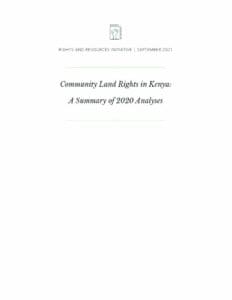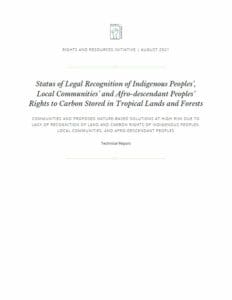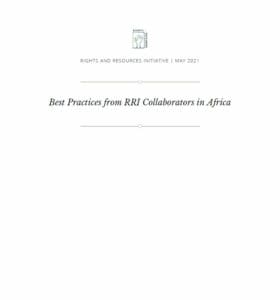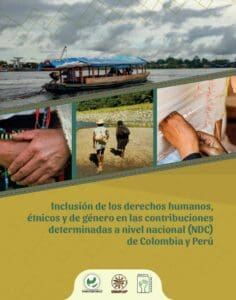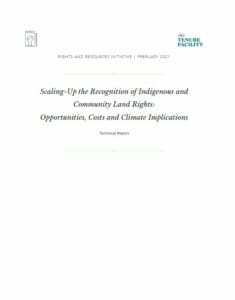This summary highlights Kenya-specific findings of three RRI studies conducted in 2020. This document will explain what the findings of these three studies mean for Kenya, and aims to equip local communities and civil society organizations (CSOs) with data to advance their advocacy work to influence future reforms and help the government, donors, private sector actors, and conservationists make informed decisions.
This study reviews the status of the legal recognition of the rights of Indigenous Peoples, local communities, and Afro-descendant Peoples to the carbon in their lands and territories across 31 countries in Africa, Asia, and Latin America. Together, these countries hold almost 70 percent of the world’s tropical forests and represent at least 62 percent of the total feasible natural climate solution potential, and thus the bulk of nature-based emissions reductions and carbon offset opportunities in tropical and subtropical forest countries.
This analysis shows that the vast majority of tropical forested countries seeking to benefit from international forest carbon markets have yet to define in law and in practice the rights of Indigenous Peoples, local communities, and Afro-descendant Peoples over carbon in their customary lands and territories.
RRI’s Collaborators from the Africa region have implemented a wide range of projects with the central goal of securing Indigenous Peoples (IPs)’ and local communities (LC)s’ tenure as a baseline for other pro-community engagements. RRI is highlighting some of the best practices from these projects to strengthen our Coalition members’ advocacy and other work, now and in the future.
In December 2015, the Paris Agreement was adopted at the 21st Conference of the Parties (COP21) of the United Nations Framework Convention on Climate Change (UNFCCC). Five years after the submission the NDC proposals and their initial implementation, signatory countries had to update and share the progress of their NDCs in 2020. This study carried out by Asociación Ambiente y Sociedad, ONAMIAP (National Organization of Andean and Amazonian Indigenous Women of Peru) and RRI analyzes the degree that human rights, women’s rights, and the rights of Indigenous Peoples and Afro-descendants are included in the NDCs of Colombia and Peru, as well as in the processes related to updating them.
A growing body of evidence suggests that recognition of the collective tenure rights of Indigenous Peoples, local communities, and Afro-descendants is a powerful and cost-effective strategy for addressing the climate and biodiversity crises. In spite of this, international funding for rights recognition pales in comparison to donor mobilization around alternative solutions to these crises.

